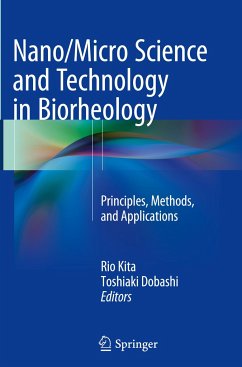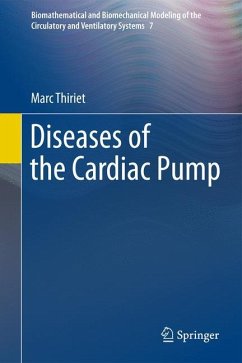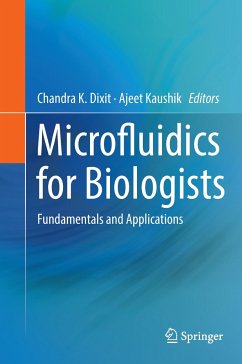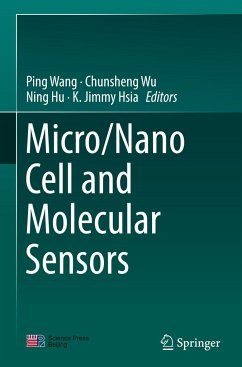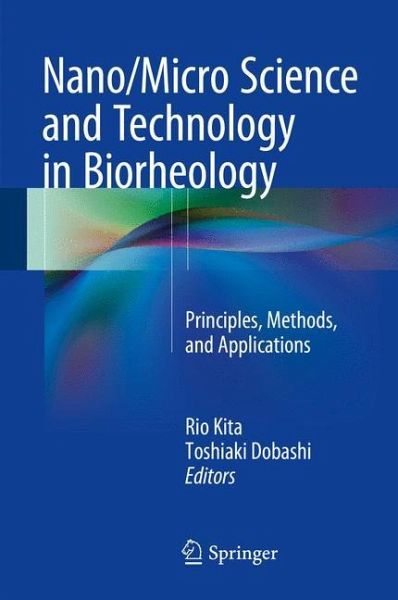
Nano/Micro Science and Technology in Biorheology
Principles, Methods, and Applications
Herausgegeben: Dobashi, Toshiaki; Kita, Rio

PAYBACK Punkte
38 °P sammeln!
Integrating basic to applied science and technology in medicine, pharmaceutics, molecular biology, biomedical engineering, biophysics and irreversible thermodynamics, this book covers cutting-edge research of the structure and function of biomaterials at a molecular level. In addition, it examines for the first time studies performed at the nano- and micro scale. With innovative technologies and methodologies aiming to clarify the molecular mechanism and macroscopic relationship, Nano/Micro Science and Technology in Biorheology thoroughly covers the basic principles of these studies, with help...
Integrating basic to applied science and technology in medicine, pharmaceutics, molecular biology, biomedical engineering, biophysics and irreversible thermodynamics, this book covers cutting-edge research of the structure and function of biomaterials at a molecular level. In addition, it examines for the first time studies performed at the nano- and micro scale. With innovative technologies and methodologies aiming to clarify the molecular mechanism and macroscopic relationship, Nano/Micro Science and Technology in Biorheology thoroughly covers the basic principles of these studies, with helpful step-by-step explanations of methodologies and insight into medical applications. Written by pioneering researchers, the book is a valuable resource for academics and industry scientists, as well as graduate students, working or studying in bio-related fields.





